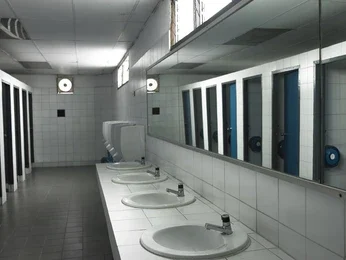Assessments Across Screens: Are More Students Cheating?
March 23, 2021
With the shift of school from physical to virtual, teachers everywhere lost much in transition. There was a loss of engagement from students who now had little incentive to speak up. A loss of connection with them. And a loss of control over them. Indeed, with many students learning from home, teachers have struggled to find a way to monitor them the way they used to in their classrooms. This might be trying to keep them from turning off their cameras and leaving the room, or from playing video games during lectures.
When it came to tests though, this lack of ability to supervise was perhaps most clear, and many teachers found that the old way of assessing no longer worked. It’s hard to quiz students on facts and knowledge when they have the vast resources of the internet at their fingertips. Of course, students cheating on tests did not spontaneously arise out of COVID-19. As long as there have been assessments, there have been those that look for loopholes. However, with most students now having free roam over the web, many teachers are acutely aware of how easy cheating has become.
“I’m concerned that cheating is rampant, despite the multitude of measures we try to put in place,” said one anonymous one.
Of course, it’s important to acknowledge that there haven’t been any studies in Hastings as to whether or not more students actually are cheating on tests during the pandemic, and many of the teachers I spoke with made this clear in their responses.
“There is no way to easily prove that cheating is more commonplace now versus prior to the pandemic,” noted Ms. Barenfeld, who teaches Chemistry. In fact, it’s perfectly possible that the specific few who cheated pre-COVID-19 have continued to, while those who didn’t still don’t.
However, many think this isn’t the case. A recent study done by the publishing and digital education company Wiley found that ninety-three percent of professors believe students are more likely to cheat online than in person, and the concerns of the teachers I spoke with seemed to support the conclusion.
“I do worry about students cheating while taking tests virtually because I want students to have a realistic picture of how well they understand what they’re learning,” voiced Ms. Barenfeld. She added that “many students who take tests in person also feel students at home have an unfair advantage due to the possibility of cheating.” Echoing this fear of remote students taking advantage of cheating, ninth grade History teacher Mr. Hunt said he “figured out pretty early on [he] couldn’t have regular assessments, just because so many of [his] students are remote.”
As for why they think more students might be cheating, there’s a few reasons. One, of course, is that it’s easier than it was when school was in person. Students who would never have snuck in a flashcard with notes to a test might not feel as guilty about just opening a new tab. It simply takes less effort.
Another reason is that things have just become less personal. When in class, the thought of having a professor you know well getting angry with you is a strong deterrent. With a shift to remote learning though, this fear of punishment is mostly gone.
“I just don’t know my students as well under this model,” said Mr. Hunt, and he feels this lack of connection might be why students are less afraid to cheat.
Building on this, Dr. Stephens explained how he thinks virtual learning plays into it. “We seem more predisposed to cheat on things that we think have little value or meaning. I think it is much more difficult to feel a sense of community and value in learning when you stare at a screen all day.” Studies have indeed shown that this feeling of community plays an important role in stopping students from cheating, as they share the academic principles of the community and also fear the repercussions of violating the trust of its members. In particular, schools with honor codes that have communities built on the values of academic integrity and honesty are those with the lowest rates of cheating.
As to why she worries more students might be cheating, Ms. Barenfeld explained that “during a pandemic, mental, physical, and emotional fatigue are very real,” and that “cheating may feel like the only option for some students.” She also thought that some students might feel that during virtual learning “there is a culture of cheating and that the only way to keep up is by also cheating.” This worry is supported by research compiled by McCabe et al. in 2001, in which peer behavior was “found to show the most significant relation with student cheating.” Their work suggested that “peer behavior provides a kind of normative support for cheating… Thus cheating may come to be viewed as an acceptable way of getting and staying ahead.”
Teachers have approached this issue of cheating in a variety of ways, and have tried to find new, ‘cheating-resistant’ ways to assess students. One of the most popular is to give open-notes exams. After all, why look up things if you have all the information in front of you already? For Mr. Hunt, this means that a lot of his “tests have involved essays, and so even if students can look things up on the internet they still need to be able to express them in essay form.”
These kinds of exams are popular in the English and History departments, where it’s now harder to ask students about details in the books they’ve read, or to recount specific historical events on an exam. For STEM subjects this essay-based approach does not work nearly as well, but many teachers have still stopped giving out traditional tests. Dr. Stephens, who teaches AP Calculus, says that he’s “moved away from the traditional summative assessment,” which he describes as “one-shot, timed, at a specific moment.” Instead, he now relies “heavily on formative assessments,” such as progress checks on AP Classroom where students can pick away at a set of problems from the unit over a longer period of time. “The idea is to know everything we need to know by the end, but not necessarily at a specific point along the way. Even the midterm was a departure–students were each assigned a handful of questions that they could solve over the course of a week or so, presenting their solutions and the strategies involved in reaching [them].” According to him, his “assessments are much more focused on how we attack a problem and bring the solution all the way to the end than in the answer itself.”
Ms. Barenfeld has taken a similar approach in her class. “This year I’ve relied on more creative assessments of learning that require critical thinking, claims, evidence, reasoning, and explanations of work completed to ensure students actually demonstrate their learning. I’ve continued to use labs and projects as assessments of learning to make the material more engaging as well.”
Ms. Barenfeld expanded on some of the other ways she’s tried to limit possibilities of cheating, saying that she uses “personally-created assessment questions to prevent easy searching of answers to questions.” She offers, “opportunities for corrections and reassessment on all assignments so students can stress less about any individual score and can just focus on improving their skills.”
Dr. Stephens also believes this is a strong way of removing any incentives to cheat. “I really think my most effective method is to try to make it easy to keep coming back and attacking an idea we get wrong and lose points on. It isn’t always worth it to keep retaking something, but having the opportunity makes it less compelling to cheat into the answer the first time.” Indeed, much of this desire to cheat seems to stem from a concern over grades. By removing this worry through allowing retakes, teachers remove an incentive to cheat.
As for technological tools like Classroom Relay, which tells teachers what tabs their students are looking at, there was some consensus that these were not always useful. Mr. Hunt pointed out that it “really wouldn’t be hard to circumvent those,” whether it’s using your phone or another computer. Dr. Stephens also did not like them, thinking that they “devalue students who are sharing out their best efforts and often fail to stop the dedicated cheater.”
Even with all these efforts to create fair, engaging, assessments that are harder to cheat on, there’s something about traditional tests that remains very useful, and the absence of which has been highlighted recently. Mr. Hunt talked in detail about how using open notes assessments solves some problems but can create others, such as reducing the desire to learn and know the material.
“I feel that what’s happened is that students don’t feel like they need to memorize things, really know things, because they feel like they have the crutch of having notes when they take the tests, and as a result when they take the test they don’t actually know things very well.” In fact, he’s “been kind of shocked. I thought everyone would just ace the tests. It hasn’t really worked that way. I’m really seeing now how important actual tests are, because students know that they are accountable for the information, so they’re much more motivated in class to make sure that they’re understanding it, more likely to ask questions, study, and memorize.” In virtual school, the lack of traditional tests made many realize just how important they were.
Since teachers cannot actively control what rules and expectations students choose to follow while taking tests from home, how would they dissuade anyone thinking of cheating from doing so? According to Ms. Barenfeld, “cheating deprives people of the opportunity to honestly demonstrate their comprehension of a subject. It also prevents people from self-assessing their knowledge and identifying gaps. It limits a person’s critical thinking skills as they rely on the internet for key skills and knowledge.”
“At the end of the day you have this time period in your life which is your chance to become educated,” implored Mr. Hunt. “After you’re done with college you have real-life and a big chunk of your learning has passed. And getting away with the ‘Haha I fooled the teacher and I learned absolutely nothing this year,’ I mean, who’s the winner in that situation? Like, great, good job, you escaped an education!”
For students who truly are considering cheating during tests, the teachers want them to know that they both shouldn’t and truly don’t have to. They understand that this period of virtual learning can make it feel like the value of school has dropped significantly and that there’s no real point in putting in much effort. They understand that students are under a lot of stress from this pandemic and school for remote students is nowhere near as engaging as it used to be.
As Mr. Hunt puts it, the whole system is “imperfect,” and Dr. Stephens acknowledged that it’s much harder both for students to show off what they know and for the teacher to ask good questions. However, teachers are firm in their belief that cheating does not need to be what students resort to. Rather, students should talk to their teachers if they’re struggling or feel a lack of motivation. While these sorts of feelings have been aggravated by the pandemic, teachers have been helping students deal with them throughout their careers. Ms. Barenfeld tried to make this clear to me. “For students feeling buried in stress, try to reach out to all of your teachers for support. We’re here to help you.”

















